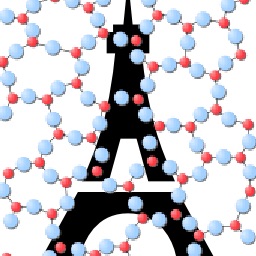Balance between Accuracy and Simplicity in Empirical Forcefields for Glass Modeling: Insights from Machine Learning.
Classical molecular dynamics and Monte Carlo simulations of glassy materials critically rely on the availability of accurate empirical forcefields. To this end, empirical forcefields must exhibit an optimal balance between accuracy and simplicity—wherein forcefields that are too simple (underfitted) may not offer accurate predictions, whereas those that are too complex (overfitted) may not provide a good transferability over various systems. However, the development of new forcefields that capture the essential features of glassy materials while retaining minimum complexity has largely remained intuition-based thus far. Here, we report a new forcefield parametrization method that is based on machine learning optimization. By taking the example of glassy silica, we show that this approach allows us to identify the optimal degree of forcefield complexity in a non-biased fashion. Our method could greatly accelerate the development of new accurate, yet transferable forcefields for the modeling of silicate glasses.
